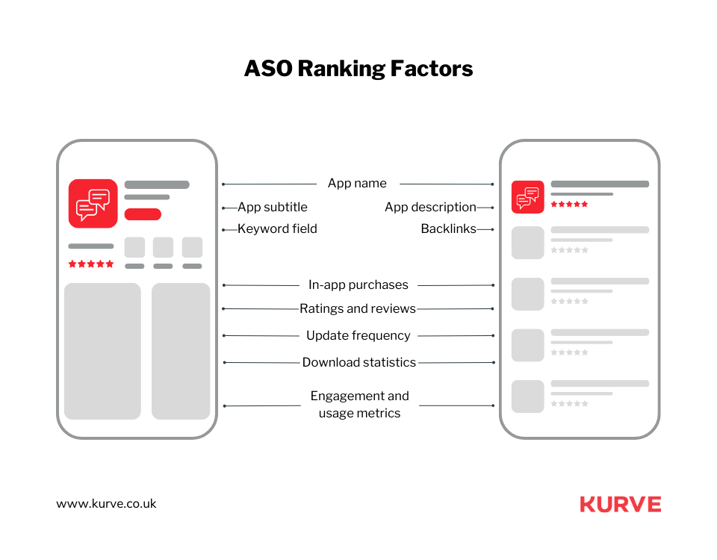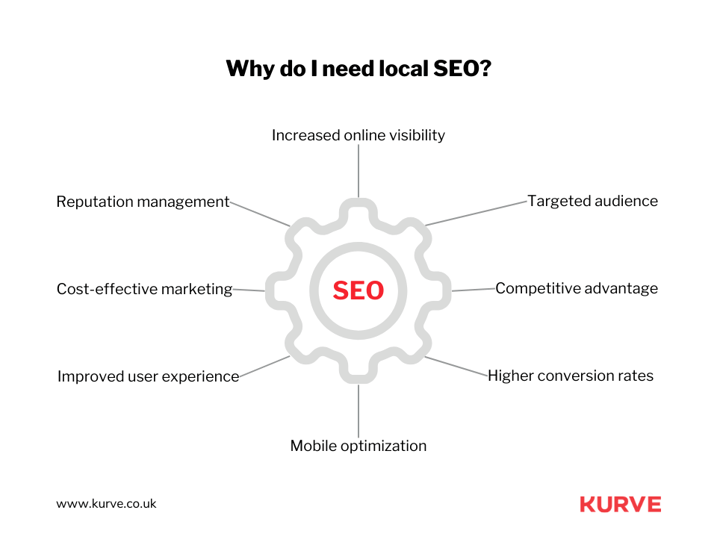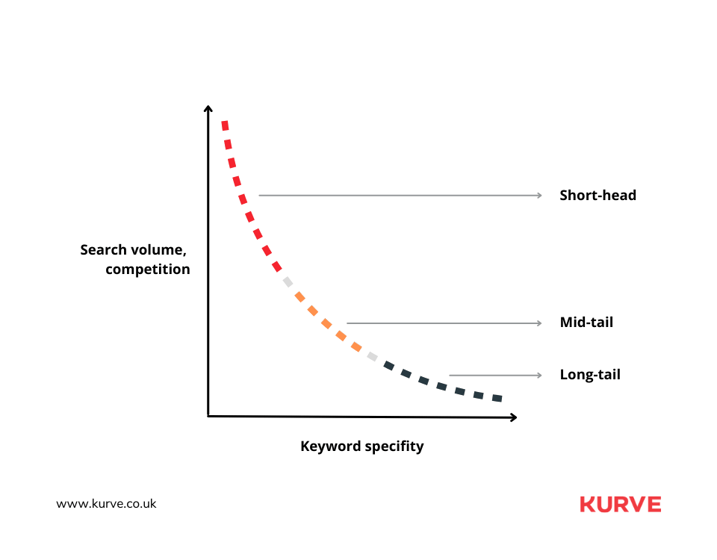Keyword Power: Understanding App Store Keyword Search Volume
App Store Optimization (ASO) is a central pillar for visibility and user acquisition in the ever-evolving landscape of mobile apps.
One of the most critical elements of ASO is keyword optimization.
It's not only about choosing the right keywords; it's about understanding how many people search for those search terms. This metric, "App Store Keyword Search Volume," is pivotal in driving user downloads.
When we collaborated with Sweatcoin, understanding keyword search volume was instrumental in making it the UK's number 1 health and fitness app and the fastest-growing health and fitness app in history.
This guide will give you an in-depth understanding of App Store Keyword Search Volume, empowering you to make data-driven decisions for your app's growth.
App Store Keyword Search Volume: Background
Before diving into the nitty-gritty of App Store Keyword Search Volume, it's crucial to set the stage for those who may be new to this concept. In the realm of mobile apps, visibility is everything.
You could have the most groundbreaking app, but if it's buried under thousands of others in the App Store, it's unlikely to see the light of day. This is where App Store Keyword Search Volume comes into play.
It's a metric that helps you gauge the demand for specific keywords related to your app. By understanding this, you can optimize your app to appear in relevant searches, increasing your chances of user downloads.
What is App Store Optimization (ASO)?
ASO enhances your app's visibility within app stores through various optimization techniques. Keywords play a significant role in this.
You can improve its ranking and discoverability by selecting the right keywords and placing them strategically within your app's metadata. Explore our in-depth blog post on the subject for a more comprehensive guide on ASO.
What is Keyword Research for ASO?
Keyword research for ASO is the process of identifying the most relevant and high-performing keywords for your app. It involves analyzing metrics such as search volume, competition, and relevance.
The goal is to find keywords that describe your app's functionality and have a high search volume and low competition. Nailing keywords enables your app to rank higher in search results, increasing its visibility and download potential.
How Keywords Work on Apple App Store vs. Google Play Store

While the fundamental concept of keyword optimization remains the same, how keywords work varies between the Apple App Store and Google Play Store. A specific keyword field in the Apple App Store is limited to 100 characters, making keyword selection crucial.
The Google Play Store relies more on natural language processing and scans your app's title, subtitle and description to extract relevant keywords. Understanding these nuances can help you tailor your ASO strategy for each platform.
How Many Keywords Are Needed for ASO?
The number of keywords you should target for ASO is flexible. It varies depending on several factors, such as your app's niche, competition, and the platform you're focusing on.
But it's essential to strike a balance. Targeting too few keywords may limit your app's visibility, while going overboard could dilute the effectiveness of your primary keywords. A well-researched and balanced keyword strategy is critical to maximizing your app's potential reach.
What is Keyword Search Volume?
Keyword Search Volume is the number of times a specific keyword is searched for within an app store over a given period. This metric is crucial as it helps you understand the demand for particular keywords related to your app.
For example, let's say you have a fitness app. If the keyword "home workouts" has a high search volume, it indicates that many users are looking for apps that offer home workout routines.
Targeting high-volume keywords increases the likelihood of your app appearing in relevant search results - boosting the potential for downloads.
Understanding Keyword Search Volume is fundamental in crafting an effective ASO strategy. It allows you to make data-driven decisions, ensuring your app reaches its target audience.
Why is Learning the Keyword Search Volume Important?
Understanding the significance of Keyword Search Volume is not just a matter of curiosity; it's a cornerstone for any successful App Store Optimization (ASO) strategy.

The main reason is your app's visibility. When you target keywords with high search volume, you're tapping into existing demand, which drives more traffic to your app and increases the likelihood of downloads.
But it's not just about visibility but also strategic prioritization. There’s a whole host of reasons, including,
- Optimize efforts and budgets: Knowing which keywords are in high demand, you can focus your optimization efforts and budget allocation. Instead of spreading your marketing budget thinly across a wide range of keywords, you can invest more in those likely to yield a higher return on investment.
- Identify competitor gaps: When you understand the search volume of various keywords, you can identify gaps your competitors may have overlooked. You can then position your app to set it apart from the competition. Doing so can give you a unique advantage in the crowded app marketplace.
- Find an audience with genuine interest: Keywords with high search volume often correlate with higher user intent. In other words, the users searching for these keywords are not browsing but actively looking for solutions. By targeting high-intent keywords, you ensure you're reaching an audience interested in your app's offering.
Keyword Search Volume is a multi-faceted metric. It serves various aspects of your ASO strategy, from visibility and budgeting to competitive positioning and understanding user intent. It's a must-know for anyone serious about optimizing their app for success.
Strategies for High and Low Search Volume
Navigating the complexities of keyword search volume requires a nuanced approach, especially when targeting high and low-search volume keywords. Let's explore these strategies in greater detail.

High Search Volume Keywords
High search volume keywords are a double-edged sword. While they offer the potential for significant traffic, they are also highly competitive. The first step in leveraging these keywords is to include them in your app's title and subtitle, as these areas carry the most weight in app store algorithms.
But don't stop there.
Extend these high-volume keywords into your app's promotional text and description. However, it's crucial to maintain a natural flow in the text to avoid the pitfalls of keyword stuffing. Using too many can negatively impact user experience and even result in penalties.
Paid campaigns are another avenue to explore. Given the high demand for these keywords, investing in paid advertising can immediately boost visibility and downloads. But be cautious; track the campaigns to ensure a good return on investment.
Consider using these high-volume keywords in your app's visual elements, such as screenshots and video captions. Visual cues can also influence search algorithms and user behavior.
Low Search Volume Keywords
Low search volume keywords may not seem glamorous, but they are the hidden gems in your ASO strategy. These keywords are less competitive, making ranking higher in search results easier for your app.
Begin by incorporating these low-volume keywords into your app's description and promotional text. Because of the lower competition, these keywords often yield quick wins regarding visibility and downloads. Another strategy is to use these low-volume keywords in your in-app content and push notifications. Low-volume keywords can improve your app's keyword profile without affecting the natural flow of your promotional materials.
Finally, tap into the power of user-generated content. Encourage users to use these low-volume keywords in their reviews, which improves your app's keyword density and adds a layer of authenticity to your app's listing.
High and low search volume keywords each have their own set of challenges and opportunities. For high-volume keywords, the focus should be maximizing visibility in a highly competitive environment. For low-volume keywords, the strategy should be to find and capitalize on less obvious opportunities that your competitors might overlook.
By understanding these nuances and tailoring your strategies, you're setting the stage for a more effective, nuanced, and successful ASO campaign.
Best App Store Keyword Research Tools
As we've discussed, understanding keyword search volume is essential for a successful ASO strategy. Yet, manually gathering this data can be daunting, not to mention the risk of inaccuracies. That's where specialized keyword research tools come into play. These tools save you time and provide valuable insights that significantly enhance your ASO efforts.
Choosing the right tool is crucial. A subpar tool can lead you down the wrong path, wasting time and resources. Rest assured, the tools we're about to discuss are not random picks. We've used or studied these tools for our clients to ensure they meet the highest standards.
It's worth noting that this is not a promotional endeavor – we only aim to provide reliable options that can help you in your ASO journey.
1. Keywordtool.io
Regarding keyword research, Keywordtool.io is a robust alternative to Google's Keyword Planner. Designed with SEO, PPC, and content creation in mind, this tool is a go-to resource for business owners, online marketers, and content creators alike.
Key Features
One of its standout features is its ability to generate up to 750+ long-tail keyword suggestions for every search term, even in its free version. Reliability is another strong suit; the tool claims to work 99.99% of the time.
Its use of Google Autocomplete to generate keyword suggestions sets it apart, making it distinct from Google Keyword Planner. You don't need an account to use the free version. It also boasts multi-language and domain support, covering 192 Google domains and 83 languages.
How It Works
Keywordtool.io employs Google Autocomplete to generate long-tail keywords. It cleverly appends and prepends the search term with different letters and numbers to offer many suggestions. These suggestions are based on various factors, including past search frequency.
Why It's Useful
This tool is invaluable for content creation, helping you discover what potential customers or readers are searching for. It's also a treasure trove for SEO, revealing valuable long-tail keywords often hidden in Google Keyword Planner. For PPC campaigns, it aids in selecting optimal keywords, contributing to higher click-through rates and lower costs per click.
Limitations
While the tool is feature-rich, it's worth noting that the free version has limitations on the number of keywords generated. Also, unlike Google Keyword Planner, it doesn't offer data like competition level, suggested bids, or average monthly searches.
Additional Information
Keyword Tool Pro and Keyword Tool API offer more accurate search volume, CPC, and competition data for those seeking more depth. The tool is also a boon for international SEO, given its extensive domain and language support.
2. SeedKeywords
If you're looking for a tool that offers a unique approach to keyword research, SeedKeywords is worth considering. Developed by Red Evolution, a UK-based B2B Web Design Agency, this free tool aims to provide valuable keywords based on real-world data, leveraging your social network.
Key Features
SeedKeywords stands out for its "Search Scenarios" feature, which allows you to create a specific query scenario. You can then share a unique URL of this scenario with your contacts. As people input keywords into your scenario, your seed keyword list grows, offering a community-driven approach to keyword research.
How It Works
The process is simple. Create a search scenario for a specific query, share the unique URL with your network, and watch as your seed keyword list expands based on the inputs from your contacts.
Why It's Useful
What sets SeedKeywords apart is its focus on real-world data. Unlike other tools that rely solely on algorithmic predictions, this tool provides keyword suggestions based on what people are searching for. It's a simple, free tool that leverages your social network to offer a more diverse range of keyword suggestions.
Limitations
However, the tool does have its drawbacks. Its effectiveness largely depends on your social network's size and diversity. Additionally, it lacks analytical data like search volume, CPC, or competition level, which other keyword tools commonly provide.
Additional Information
Developed by Red Evolution, the tool targets SEO professionals and marketers interested in understanding real-world search behavior. It's a unique offering in the crowded space of keyword research tools, especially for those who value community-driven insights.
3. Thesaurus.com
While Thesaurus.com may not be the first platform that comes to mind for keyword research, its utility should not be underestimated. Primarily an online thesaurus trusted for over 25 years, this platform offers unique benefits for content creators and SEO professionals.
Key Features
The site's core feature is its "Synonym Finder," which provides a list of synonyms for any given word, invaluable for diversifying keyword usage in your content. Additionally, the site offers a "Word of the Day" feature, word games, and quizzes to help sharpen your language skills. It also provides articles on trending language topics.
How It Works
Using Thesaurus.com is straightforward. Please search for a word to find its synonyms. The site also offers games and quizzes about language, articles, and tips on language trends and usage.
Why It's Useful
The platform serves as a valuable resource for content enrichment. Offering synonyms for repetitive keywords helps make your content more diverse and engaging. From an SEO perspective, it can aid in avoiding keyword stuffing by providing alternative words with similar meanings. The site also aims to help users improve their mastery of the English language.
Limitations
However, it's important to note that Thesaurus.com is not a traditional keyword research tool. It doesn't offer search volume, CPC, or competition-level metrics. Also, the tool is primarily English-centric, which may limit its utility for international campaigns.
Additional Information
With a history of over 25 years, Thesaurus.com is one of the most trusted online thesauruses used by millions worldwide. While it may not replace traditional keyword research tools, it offers a unique angle for diversifying your keyword strategy.
4. Keysearch.co
If you're in the market for an all-in-one SEO tool, Keysearch.co is worth your attention. The tool is designed to focus on keyword research and SEO analysis and offers many features to give you a competitive edge.
Key Features
Keysearch.co is a web-based system that eliminates the need for software installation. One of its standout features is the "Keyword Difficulty Checker," which provides a complete SEO competition analysis for any keyword. It also offers a wide range of keyword suggestions, with search volume and CPC data.
Additional features include rank tracking, a dedicated section for YouTube keyword research, a backlink checker, and an AI-powered content assistant to optimize your articles or blog posts.
How It Works
Input a seed keyword, and the tool generates hundreds of related keywords along with their search volume and CPC data. You can also enter a competitor's URL to discover the keywords they are ranking for. The tool even offers a "Deep Analysis" feature to provide more data and LSI keywords.
Why It's Useful
What sets Keysearch.co apart is its comprehensive analysis capabilities. Whether you're researching keywords for a website or YouTube channel, this tool has you covered. It also allows you to spy on competitors by checking their backlinks and rankings, giving you a competitive edge.
Limitations
It's worth noting that this is a paid tool. However, it does offer a free trial and various pricing plans to suit different needs.
Additional Information
The platform has received positive testimonials, emphasizing its effectiveness and customer support. With multiple pricing plans available, it offers flexibility for users at different stages of their SEO journey.
Start Your ASO Journey Today
Understanding App Store Keyword Search Volume is pivotal for any successful ASO strategy. Each step is crucial in achieving your app's visibility and user acquisition goals, from choosing the right keywords to leveraging specialized tools.
If you want to dive deeper into this subject or need expert guidance, please get in touch with us. At Kurve, we specialize in mobile app marketing to help you navigate the complexities of the digital landscape.
Thank you for joining us on this comprehensive guide. We hope it serves as a valuable resource in your ASO journey. Until next time, keep optimizing and growing.


